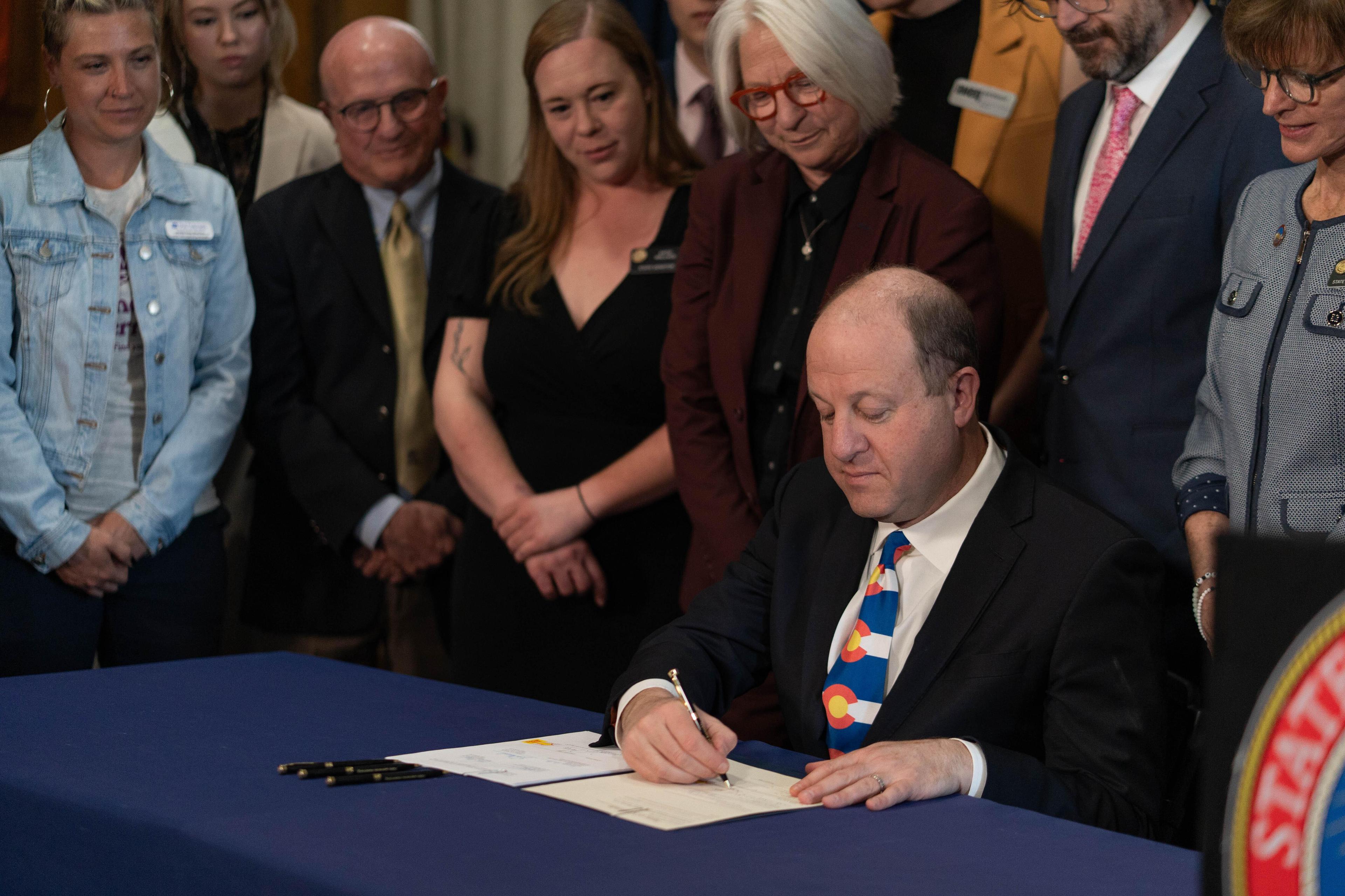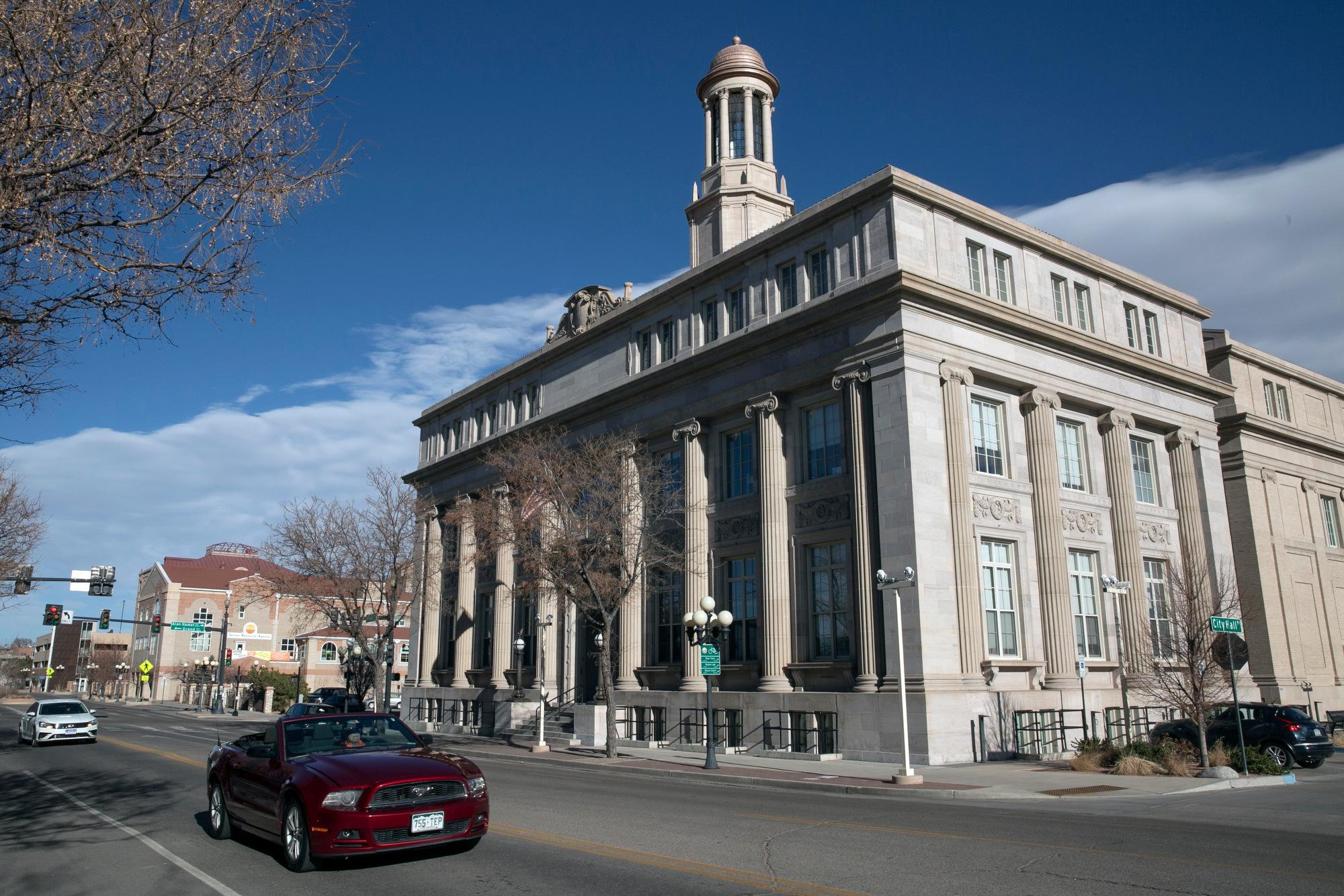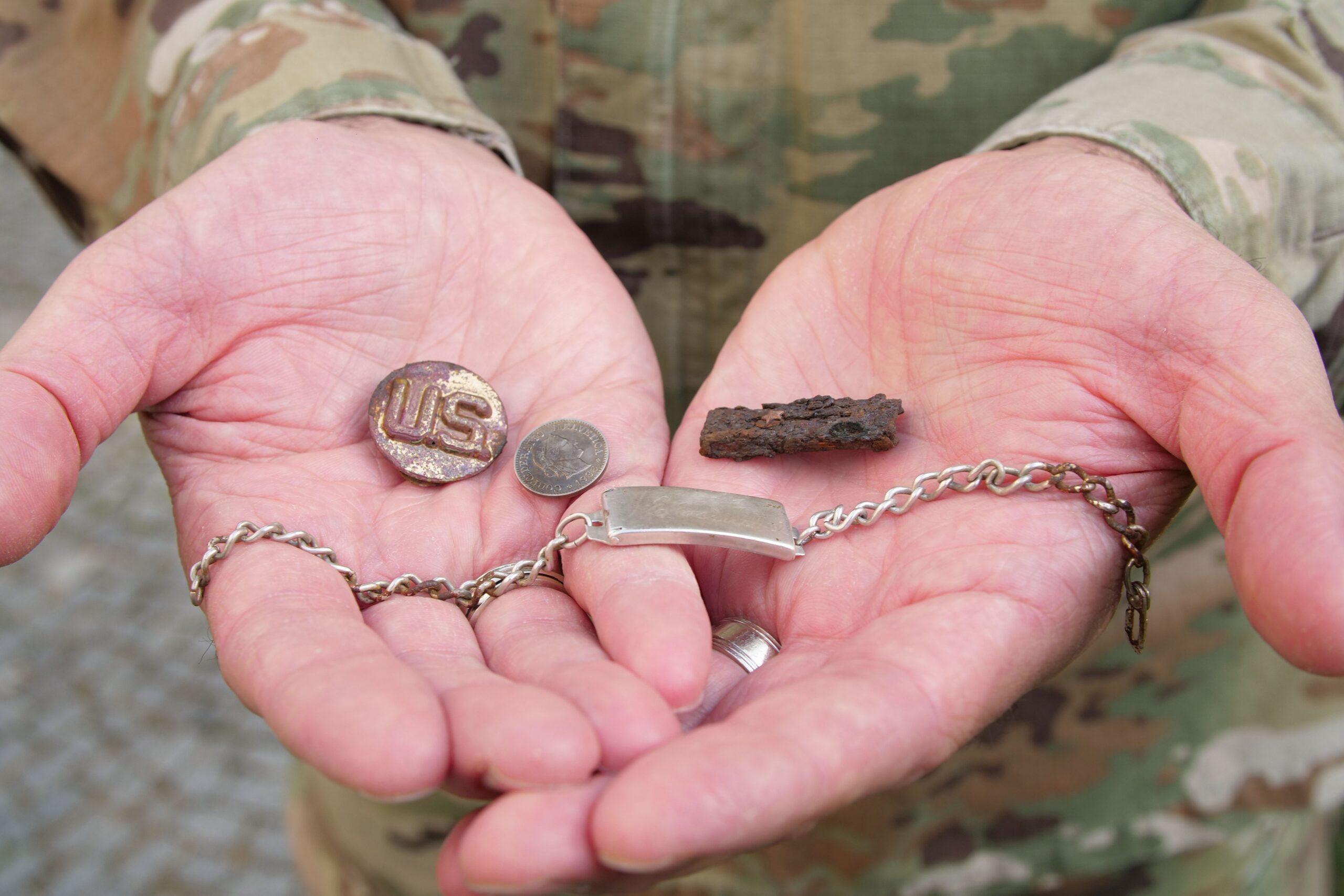
When Joe Esquibel was just a teenager and about to be sent off to World War II, he bought himself a keepsake: a small, silver bracelet. On one side, he had the engraver add his signature. On the other, he used a nail to scratch the first name of his sweetheart back home in New Mexico.
Lydia.
Not too long after, he found himself guarding a prisoner of war camp in what was then known as Czechoslovakia. One day in 1945, right before he was supposed to leave for Germany, he discovered that one of his bags was missing.
“And they stole my items that I had in the duffle bag,” said Esquibel, now 95.
The bracelet, among other things, was gone. He reported it, but it was hectic, with no time for anyone to investigate or for him to even really think about it. Esquibel was wounded in the war and was awarded a Purple Heart. Later, he married Lydia, and moved to Grand Junction. The pair would have four kids.
“And I just sort of forgot about it, you know,” he said, matter-of-factly.
The memory of the stolen stuff was buried under so much life — until this fall, when his daughter got a call she first thought must be some kind of scam. A bracelet belonging to her father had been found, half a world away.
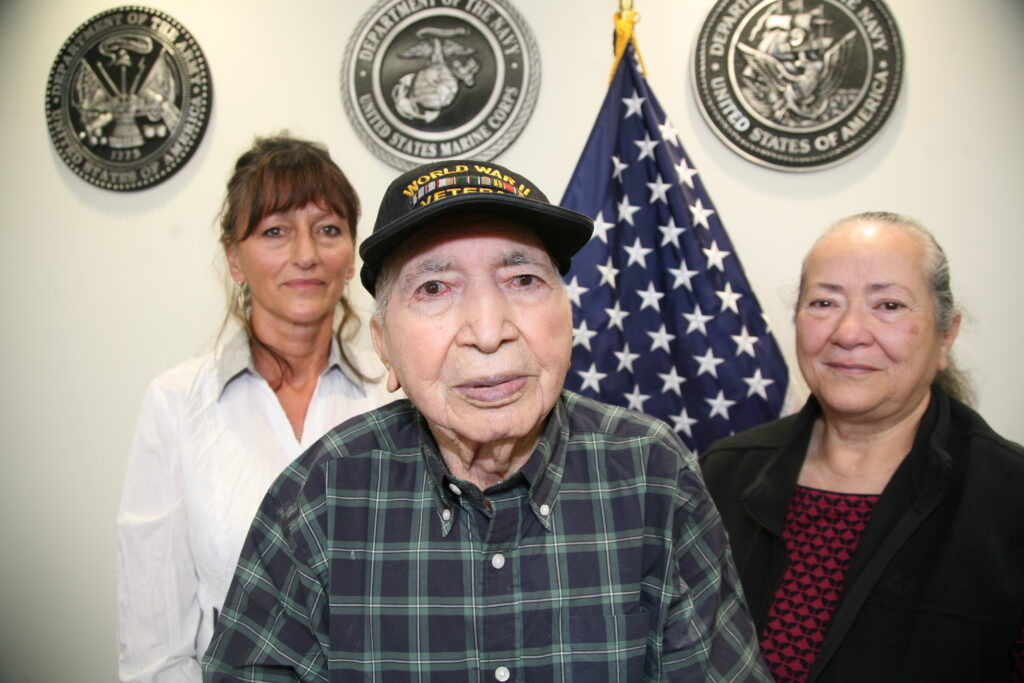
The journey to that call started in October when a man named Petr Švihovec decided to go for a walk in the Czech woods with his metal detector. His friend suggested they check out the ruins of the old POW camp, but Švihovec was skeptical they’d find anything too interesting, as people had already been combing that area for years.
But they went anyway. Švihovec remembers hearing that fateful “beep.”
“So I started to dig and I found a U.S. pin,” he said over Zoom, through an interpreter. “And after that I found a silver bracelet on which I noticed that there was a kind of signature.”
Švihovec was sure that this bracelet belonged to an American soldier, but he had no idea how to find him. All he had was a signature he could not read and a woman’s first name on the back.
It was, of course, Lydia.
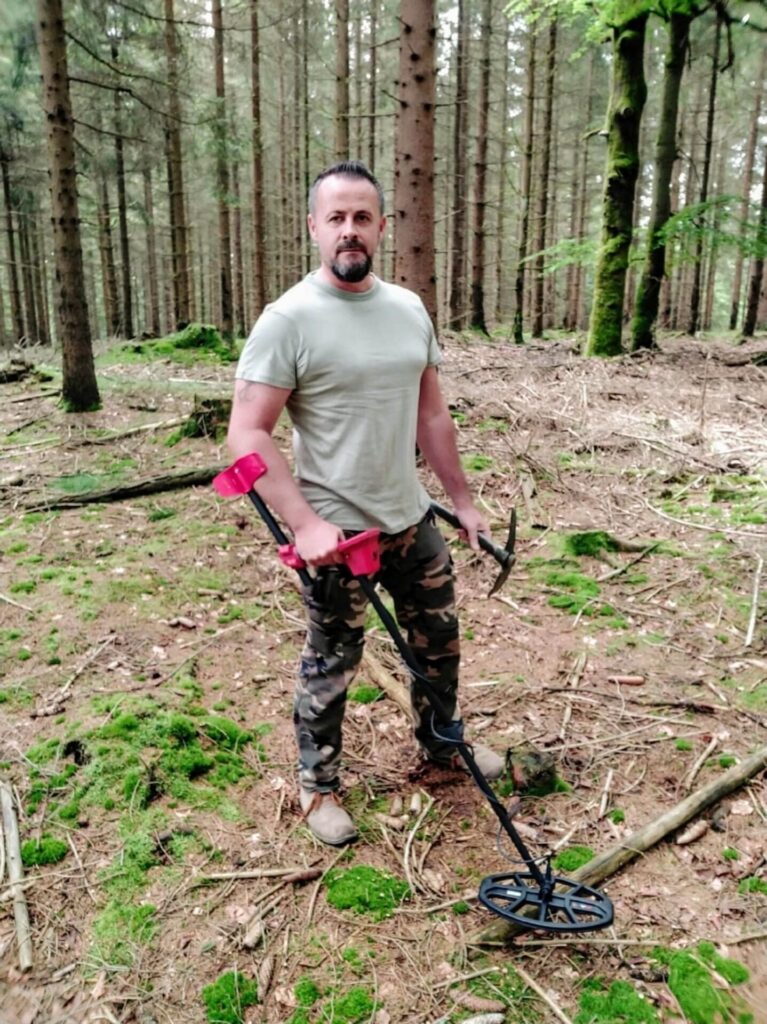
He cleaned the bracelet, took a picture and shared it on a Facebook page dedicated to treasure hunting. The group came up with maybe 30 guesses for that last name. One made the most sense.
It was, of course, Esquibel.
So Švihovec started searching for the name Lydia Esquibel and found her obituary from 2019. He read that she had lived in a Colorado city called Grand Junction and that she was survived by her husband, Joe.
A Czech historian helped Petr track down a document signed by Joe Esquibel, and the signature was an exact match to the one on the bracelet.
Again, Švihovec turned to Facebook and shared all he had learned. And then others shared the post — and shared and shared it, until Alena Busovska’s eyes landed on it.
“I think hundreds were looking at this post,” said Busovska, who lives in Grand Junction, but was born in then-Czechoslovakia.
Busovska knew she could be the final link in this chain, so she decided to make that phone call to Esquibel’s family, even though she was nervous about her English and worried about how to explain this whole thing.
“I had to come out of my shell and try, even (if) it’s not perfect,” she said.
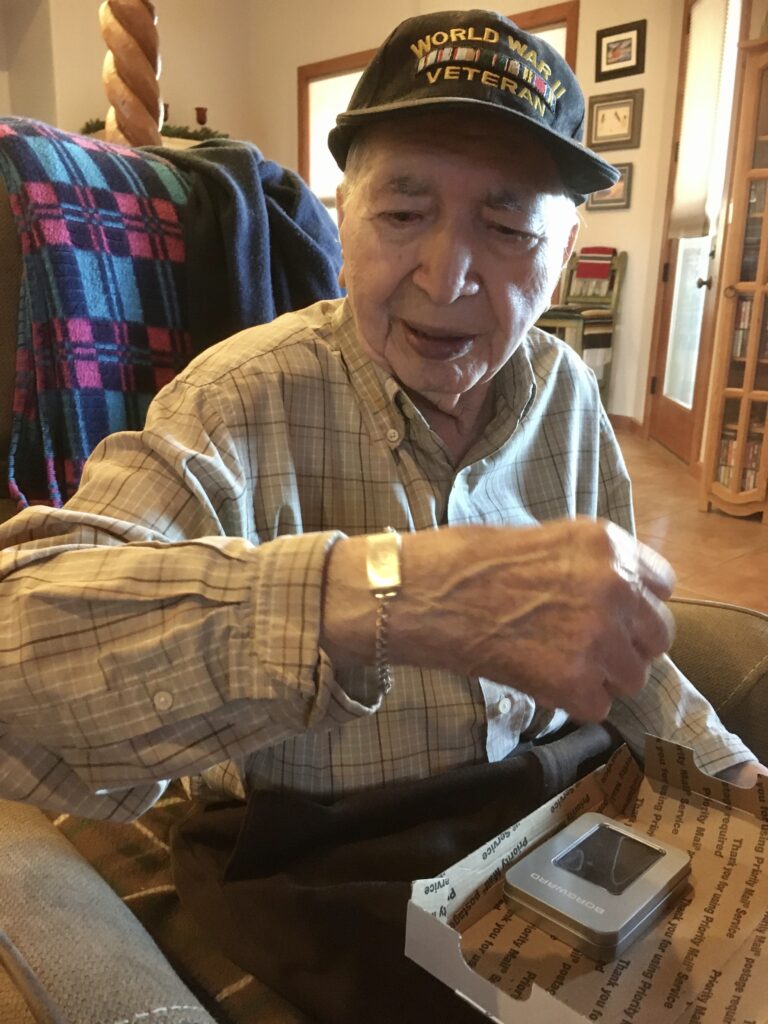
Esquibel’s daughter, Jolene Esquibel-Archuleta, remembers the shock of that call.
“It was like a dream,” she said. “I couldn’t believe it at first.”
The process wasn’t over. Švihovec had to wade through a lot of red tape to get Esquibel his bracelet. He got through to the U.S. Embassy — even the Marines — and Esquibel eventually got his bracelet back, with it a service ribbon with a bronze star, an Army lapel pin and a Swiss coin, all sent in a package via diplomatic mail.
Esquibel made sure Busovska was there when he opened it, and she took a video of him finally seeing his bracelet again. In the video, he turns the bracelet over and over again in his hands.
“It waited 76 years to get here,” says Busovska off-screen.
Joe’s daughter is so grateful to her, and to everyone who helped get the bracelet back — those in Colorado, the Czech Republic and beyond.
“I honestly think my mom made this happen,” Esquibel-Archuleta said, her voice quivering with emotion. “Our faith is very strong.”
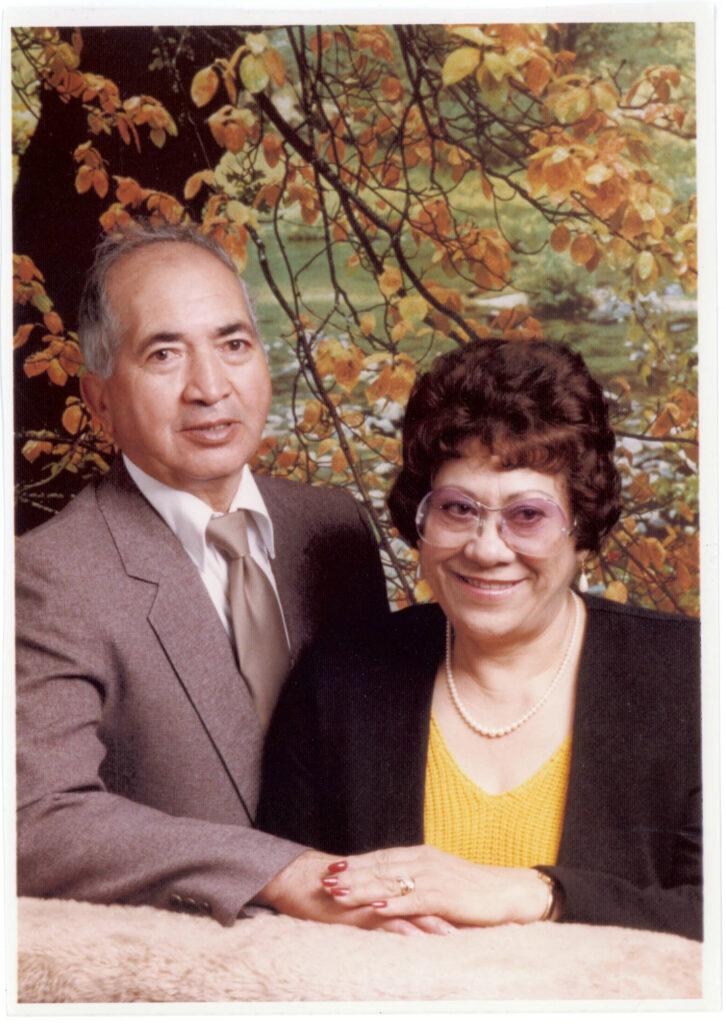
And Esquibel has this simple message for the man who unearthed these pieces of his personal history:
“Well, I thank you many times,” he said.
Both Esquibel and Švihovec say they hope to meet someday — someday soon, though COVID-19 makes travel complicated. For now, Švihovec still re-lives this tale of the bracelet all the time. Ever since the story was picked up by the Czech media, he gets recognized by strangers, strangers who ask him recount this whole, unbelievable journey.
He gets it. He’s still flabbergasted, too.
“If I would see it in the movie, I would say, ‘Oh, what a nice story. I wish that would happen in reality,’” he said. “But this really did happen. And it is real, and it's not a movie.”
Editor’s note: Thank you to Ivana Lhota for her interpretation of the Czech language.

